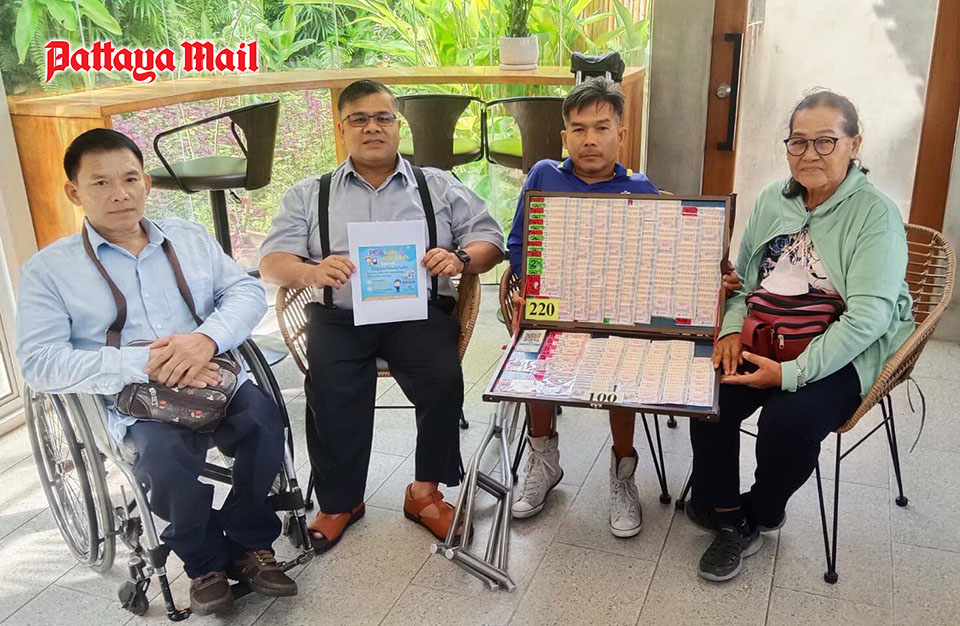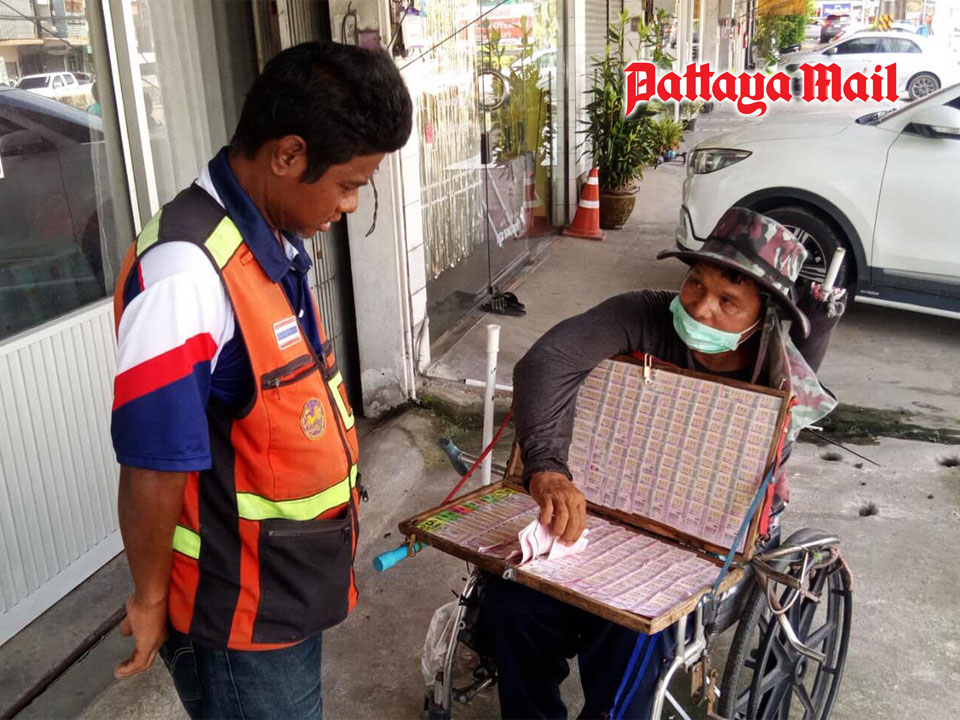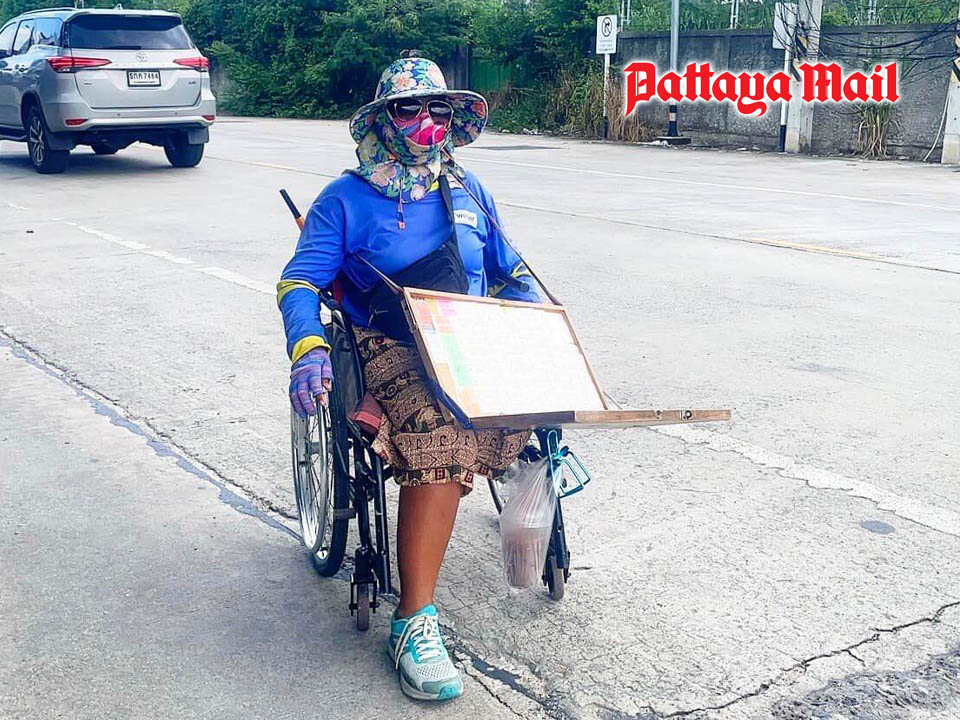
PATTAYA, Thailand – Dr. Narong Paiwansao, President of the Eastern Association of Disabilities, has called on the government to take immediate action to assist disabled lottery vendors affected by the recent introduction of a new three-digit lottery, October 24. Following the launch, sales for disabled vendors plummeted by 50%, exacerbating existing financial struggles due to the ongoing economic downturn.
Dr. Narong emphasized that selling lottery tickets is one of the few viable professions for people with disabilities, making the recent decline particularly alarming. He warned that the introduction of future retirement lotteries could further jeopardize their livelihoods, essentially closing off their only source of income.
“In the eastern region alone, the sales of lottery tickets among disabled vendors have consistently decreased by about 10-20% due to economic factors. However, since the digital lottery was introduced, sales have dropped by a staggering 50%. The recent launch of the N3 lottery has made it nearly impossible for our vendors to sell their tickets. Some have only managed to sell three tickets in an entire day,” he stated.
Dr. Narong also expressed disappointment that previous appeals to the government and the Lottery Office for support had gone unheeded. The government’s focus on reducing lottery prices has neglected the needs of lottery sellers, many of whom are struggling to survive.

“If people with disabilities can’t sell lottery tickets, what other options do we have? The law prohibits us from begging, and due to physical limitations, working in other sectors is not feasible. We urge the government to find solutions for disabled vendors and farmers who lack access to technology,” he said.
He noted that while protests by disabled individuals have often led to government engagement in the past, the current administration appears to view them as adversaries rather than members of society deserving of support. Many feel overlooked during policy-making processes, prompting a call for equal treatment.
Dr. Narong concluded by urging the public to continue purchasing lottery tickets, emphasizing that doing so not only supports their own hopes of winning but also helps integrate disabled individuals into society. He stated, “We simply seek the opportunity to work and maintain our livelihoods through lottery sales, a profession that suits us best.”

In addition, vendors in Chonburi expressed their concerns over the significant drop in sales due to the new digital lottery system, which they believe has diverted customers away from traditional lottery tickets. One vendor, Pan Intharat, highlighted the struggle to meet daily expenses, stating, “Selling lottery tickets has become increasingly challenging, and many of us are left with insufficient income to cover our basic needs.”
Vendors are pleading for increased quotas for lottery sales to help sustain their livelihoods in this challenging economic climate.









